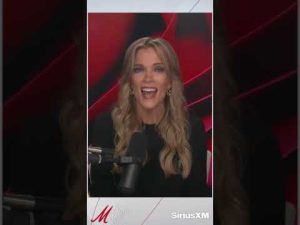In the lively arena of international trade, former President Donald Trump continues to dominate headlines with his audacious approach to negotiations, particularly with the European Union and China. With the confidence of a seasoned poker player, he expresses certainty that a trade deal with the EU will be secured within the 90-day pause he announced. Although skeptics may raise their eyebrows, his unwavering assurance suggests he knows something the rest of us might not.
At the center of this trade tempest is China’s potentially meddling hand. Experts have voiced concerns that Beijing might interfere with Trump’s negotiations to swing the pendulum in their favor. China, eager to secure favorable terms with Europe, remains a key player. Given China’s longstanding practice of imposing formidable tariffs, as high as 145%, it’s no wonder Trump is playing hardball to ensure the U.S. does not come out on the losing end.
The situation between the U.S. and China is as delicate as it is complex, akin to a high-stakes game of chicken. Much of this has to do with China’s love-hate relationship with American imports and President Trump’s readiness to slap tariffs like they are going out of style. Nevertheless, Trump promises a “fair deal,” determined to correct what he perceives as years of disadvantage unchallenged by previous administrations. It seems like the art of the deal isn’t just a book title for Trump; it’s an ongoing practice.
As these negotiations unfold, there’s also a rather entertaining subplot involving the Vatican and its dealings with China. The Vatican has been engaged in a diplomatic tango with China over the appointment of bishops, revealing another layer of China’s tricky negotiation tactics. It isn’t lost on observers that the Communist Party’s atheistic stance somewhat clashes with the Catholic Church. This ecclesiastical snafu serves as both a parallel and a cautionary tale of the Chinese government’s unwillingness to honor agreements fully.
In the grand theater of international politics, it’s clear that China, long used to calling the shots, isn’t quite as comfortable in the hot seat when Trump is on stage. As Trump navigates the labyrinth of trade agreements, it’s perhaps reassuring for his supporters that his administration seems tenaciously focused on not letting old deals gather dust. Whether one loves or loathes him, it’s hard to deny Trump’s impact on China’s position on the global chessboard. For now, opponents and proponents alike might have to sit back and watch as the drama unfolds, hoping for the best in a trade deal that could redefine economic relations.







